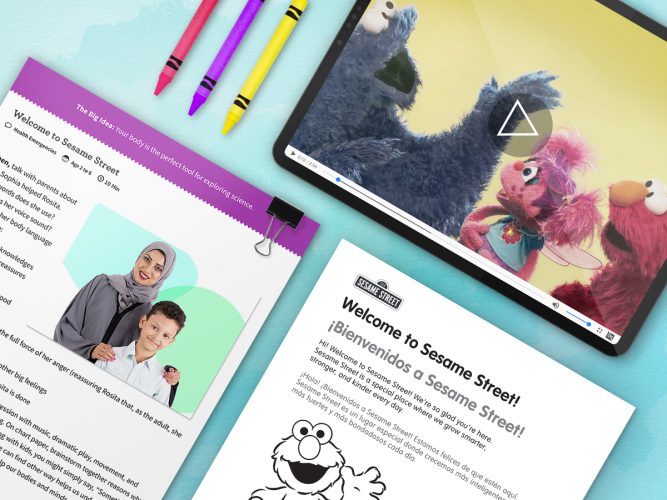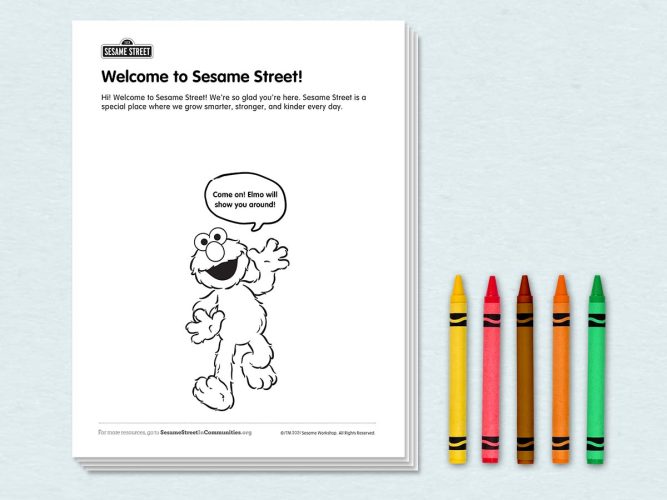
Offering Comfort
During tough times and stressful situations, children may feel as if their world has been turned upside down.
During tough times and stressful situations, children may feel as if their world has been turned upside down. In some ways, it has. But as a caring grown-up, you can help children feel calmer.
When a situation is very stressful, first ensure that everyone is safe. Then, focus on calming your bodies. These strategies can help:
- Take a deep breath. Inhale through your nose and exhale out of your mouth, slowly, three to five times.
- Count to five. Counting can help children (and grown-ups) to shift their focus away from the stress of the situation and back to the present moment. Count slowly together. Older children can count to 10 or 15 or may even count backwards.
- Tighten and relax. Finally, you might encourage children to purposely tense up and relax different parts of their bodies. They might make their hands into fists then open them (and repeat). Or, they can raise their shoulders up toward their ears, then draw them down and back, standing tall (then repeat).
When your body is calm, or when the situation is less intense, you can…
Provide Reassurance
Let children know that it’s okay to have many different feelings, and that they can always talk to a parent or another trusted grown-up about what they’re thinking and feeling. Saying “I get scared/worried sometimes too” can help them feel understood and reassure them that they’re not alone.
You can also remind children they are safe and cared for: “I know this is hard, but you are very brave. And people can be brave and scared at the same time. We’ll get through this together.” Comfort doesn’t always have to be offered with words: hold hands and hug often.
Stick to Routines
There’s always comfort in the familiar! Choosing at least one simple daily routine that children can look forward to, such as singing the same lullaby at night, can give them a sense of control.
If children seem distracted or struggle to complete daily tasks, it might help them to hear something like, “Let’s pretend to put your worry on the shelf while we [take a walk, read a bedtime story, and so on]. Then we’ll pick it up again.” Setting aside a worry or fear can help put it into perspective and give them time to relax and enjoy something they like.
Cultivate Confidence
Times of uncertainty can leave children feeling uncertain about themselves, too. You can help them remember—and celebrate—the things that make them special. Together with your child, make a list of positive statements. Invite them to choose one and repeat it throughout the day. They might say:
- I can do hard things.
- I am learning and growing every day.
- I am brave.
- I can make new friends.
- I am kind to others.
- I bring joy.
- When things change, I can be flexible.
- I am helpful.
- I am not alone.
- I am good at _____.

Hello Song
In the coming weeks, months, and years, you and your children will have lots of opportunities to meet new people.

A Welcome from Sesame Street Friends
In moments of crisis, change, or uncertainty, our sense of security is challenged. These resources will help you and your family as you navigate your new situation and prepare to take your next steps.

Welcome to Sesame Street Activity Pages
These printable activity pages can help young children (and adults!) find comfort while practicing new skills and “meeting" new friends from Sesame Street.
